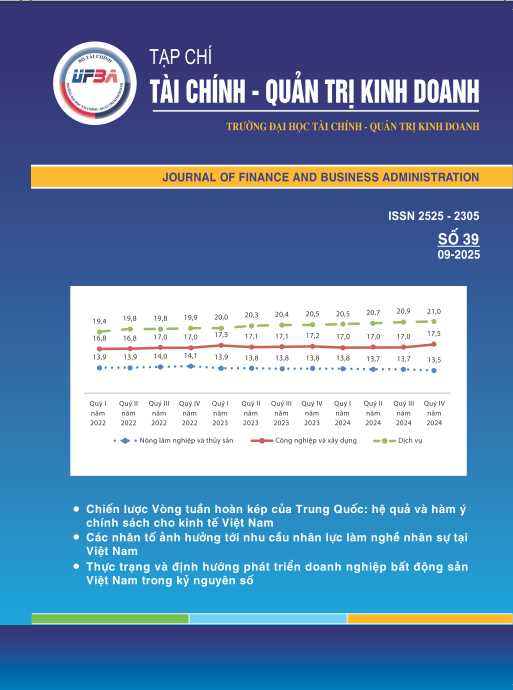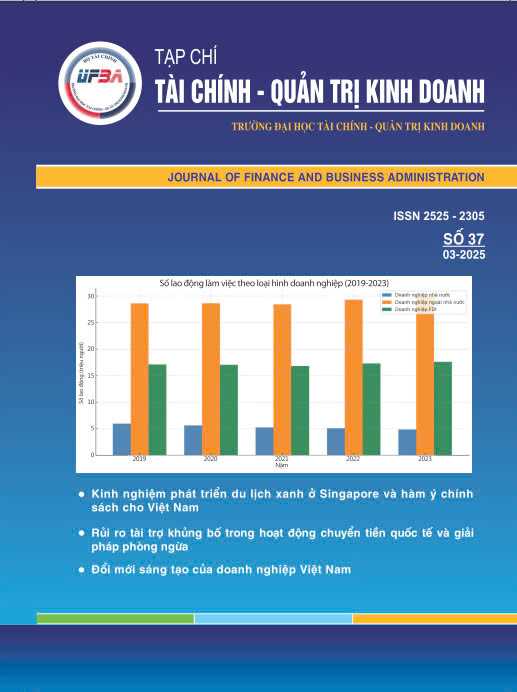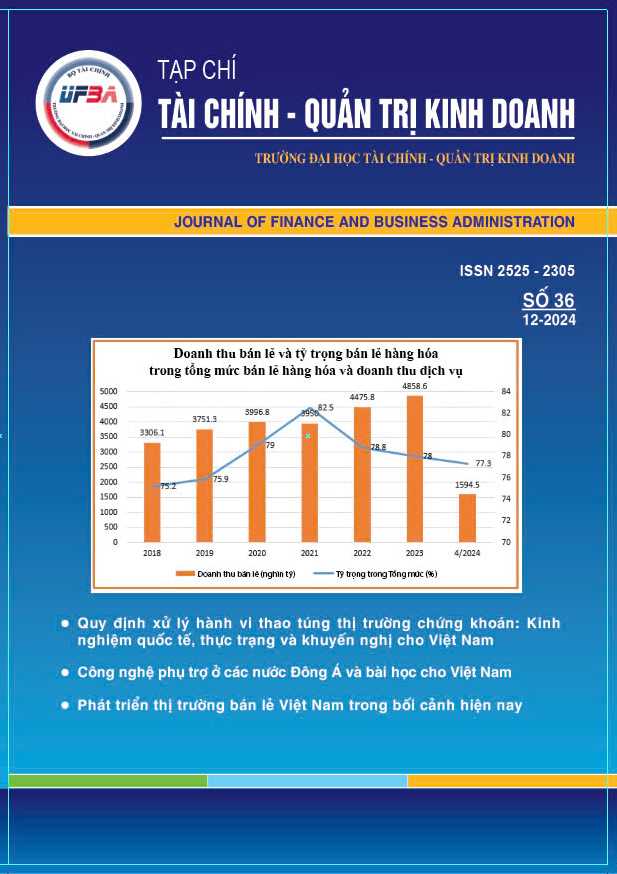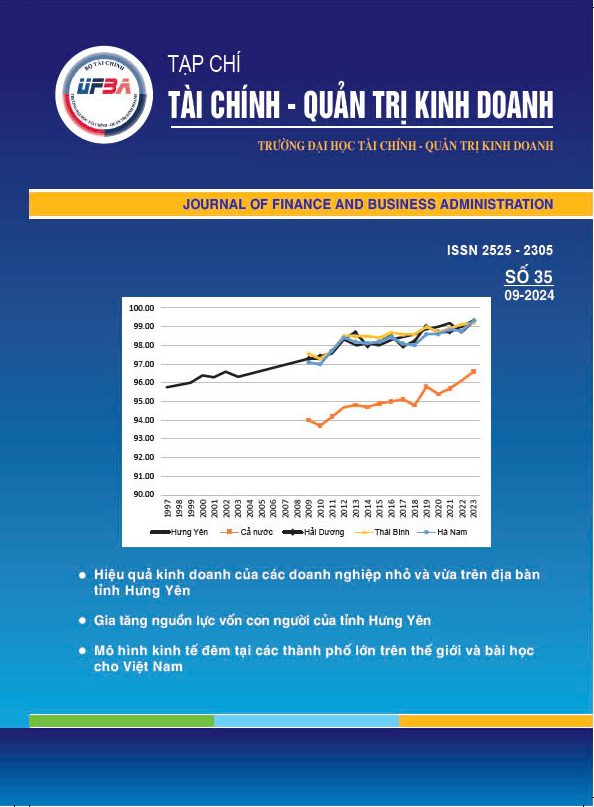JOURNAL OF FINANCE AND BUSINESS ADMINISTRATION, NUM 38.T06_2025
1. Theoretical basis of the effectiveness of commune budget management
Do Duc Minh
The commune-level budget is the grassroots level, playing a supportive and supplementary role for other levels within the state budget system. It is also esponsible for proactively carrying out specific tasks related to socio-conomic development, national defense, security, and other important duties at the local level. Effective budget management not only ensures that the commune-level budget has sufficient revenue to independently perform its assigned functions and tasks, but also creates a mechanism to encourage local authorities to actively tap into local potential, practice thrifty and efficient spending, and promote local socio-economic development. This article focuses on analyzing the theoretical basis of effective commune-level budget management, as part of the provincial-level research project titled “Research and Proposal of Solutions to Improve the Effectiveness of Commune-Level Budget Management in Hung Yen Province”.
2. Factors affecting impulsive buying behavior of gen Z on e-commerce platforms in Vietnam
Nguyen Hong Van, Do Huong Giang
In the context of digital transformation and the explosive growth of e-commerce, impulsive shopping behavior (IBB) is becoming a popular consumer phenomenon, especially among Gen Z - the generation born and raised with technology. This study aims to explore and evaluate the impact of personal psychological factors, digital technology and the environment on online IBB of Gen Z in Vietnam. Through synthesizing theories and analyzing primary data collected from 299 Gen Z consumers mainly in Hanoi and Ho Chi Minh City, with 8 factors affecting IBB including: Perceived usefulness (PU), Perceived ease of use (PEOU), Social influence (SI), Supporting conditions (FC), Stimulating factors from e-commerce platforms (ST), Hedonic motivation (HM), Price value (PV), Scarcity (SC). The results show that all factors have a positive impact on HVMSBĐ, in which Stimulating factors from e-commerce platforms (ST) and Social Influence (SI) are the two most influential factors. Based on the research results, the author proposes recommendations for e-commerce businesses to optimize marketing strategies, reduce order return rates, and build sustainable consumer behavior among Gen Z customers.
3. Impacts of viral video marketing on Intention to use skincare products in Vietnam
Do Tien Toi, Do Huy Canh
The study used primary data from 302 social media users to determine the effects of viral videos on consumers' attitudes and intentions to buy organic skin products in Vietnam. The method of testing the reliability of the scale by Cronbach's Alpha coefficient, EFA exploratory factor analysis, CFA confirmatory factor analysis and SEM scale structure model were used by software SPSS 25.0 and AMOS 24.0. The research results show that the interactivity, entertainment, and reliability of viral video sources about organic skin products, respectively, have a positive impact on attitudes toward consuming organic skin products, in addition, the risk to viewers of organic skin products' viral video has a negative impact on attitudes toward organic skin product consumption. The study examined the factors affecting consumer attitudes and suggested some managerial implications for businesses when building viral marketing video campaigns to create impressions and effectiveness.
4. Fluctuation trends of informal labor in Vietnam
Nguyen Quang Hiep
This study analyzes the trends and structural changes of informal employment in Vietnam during the period 2013–2023. Informal labor continues to account for a large share of the Vietnamese labor market, making up over 65% of total employment in 2023, despite a gradual decline from its peak of 78.1% in 2014. The findings reveal significant regional disparities and clear differences between urban and rural areas. In terms of gender, women experienced a more substantial reduction in informal employment than men. Meanwhile, young workers (aged 15–24) and older workers (over 50) recorded the highest rates of informal employment. The study also identifies a strong inverse correlation between skill level and informality, with informal workers concentrated in agriculture, elementary occupations, and low-skilled service sectors. It ecommends the implementation of vocational training policies, expansion of social protection, and promotion of formalization, particularly in disadvantaged regions. These measures aim to foster an inclusive, equitable, and sustainable labor market as Vietnam undergoes socio-economic transformation.
5. Application of artificial intelligence in self-study of students at The University of Finance - Business Administration
Dinh Thi Kim Nhung, Pham Thi Loan
Artificial intelligence is important in educational development, including students' self-study ability. With data collected from 300 students of the University of Finance and Business Administration on the use of artificial intelligence tools in self-study, the author analyzed and concluded that UFBA students have not effectively applied these tools in self-study, they mainly apply chatbox applications to translate, and search for documents and rarely use other tools. From there, the author proposed three groups of solutions to improve the effectiveness of applying AI in self-study such as the need to perfect applications, paying attention to training and popularizing applications, and strengthening students' self-directed learning and research abilities..
6. Improving the efficiency of commune budget management in Hung Yen province
Nguyen Thi Ngoc Thanh, Nguyen Huy Cuong
Improving the effectiveness of commune-level budget management plays an important role in ensuring that local authorities perform their assigned functions and tasks well. In recent years, the effectiveness of commune-level budget management in Hung Yen province has achieved certain results, creating conditions for commune-level authorities to well perform the tasks of socio-economic development, ensuring national defense and security and improving the lives of local people. Besides the achieved results, the management of commune-level budgets at the local level also revealed many limitations and shortcomings that need to be overcome. This article will focus on analyzing the current status of commune-level budget management efficiency in Hung Yen province and propose solutions to improve the efficiency of commune-level budget management in Hung Yen in the coming time. This is the result of the provincial-level research project "Research and proposed solutions to improve the effectiveness of commune-level budget management in Hung Yen province".
7. Impact of the law on credit institutions on Vietnam's banking ecosystem in the context of digital transformation
Bui Tien Thinh, Luyen Thuy Dung
The Law on Credit Institutions 2024 (Law No. 32/2024/QH15) has been enactedto regulate the banking system in the context of digital transformation and the rapid growth of financial technology (Fintech). This study examines the impact of the 2024 Credit Institutions Law on Vietnam’s banking ecosystem, focusing on key changes related to electronic transactions, the regulatory sandbox mechanism, risk management, and data security. Using document analysis and policy comparison methods, the research finds that the 2024 Credit Institutions Law facilitates innovation in digital banking while enhancing transparency and financial security. However, financial institutions also face challenges in complying with new regulations, increasing operational costs, and market competition. The findings provide a comprehensive perspective on the implications of the 2024 Credit Institutions Law for Vietnam’s banking and Fintech sectors. The study also offers policy recommendations to help stakeholders adapt to regulatory changes and promote sustainable development.
8. Experiences in private economic development in the world and policy implications for Vietnam in the digital age
Nguyen Thi Phuong Thuy
The article analyzes international experience and practices in Vietnam to propose policies for private economic development in the digital age. From successful models of Japan, Korea and China, the author emphasizes the role of the State in building flexible institutions, developing digital infrastructure, providing financial support, training human resources and promoting innovation. In Vietnam, after nearly 40 years of economic reform, the private sector has about 940,000 enterprises and more than 5 million business households in operation, contributing about 50% of GDP, more than 30% of total state budget revenue and employing about 82% of the total social labor force, which is an important driving force for innovation, creativity, productivity improvement and national competitiveness (Political Bureau, 2025). However, the private economic sector still faces many barriers such as lack of capital, limited technology, human resources and digitalization strategy. The article proposes policies such as perfecting the legal framework, building a digital transformation fund, developing digital industry clusters, training digital human resources and promoting the role of the State as a facilitator. From there, the private economic sector can effectively adapt to digital transformation, improve competitiveness and become the main driving force in sustainable growth until 2030 and beyond.
9. Raising capital for the development of community tourist spot of Sung Village
Do Thi Nhai, Tran Thi Thu Trang
Sung Village is an attractive community tourism destination with the pristine beauty of natural mountains and forests and the unique indigenous culture of the Dao Tien people. Raising capital for the development of community tourit spot of Sung Village is necessary to support people in renovating and supplementing facilities, equipment, and developing specific tourism services and products. Based on the synthesis of theoretical foundations on community tourism and capital sources to support community tourism development, analyzing the current status of community tourism development in Sung Village and capital sources to support the development of community tourit spot of Sung Village, this article proposes a number of solutions to raise capital sources to develop Sung Village in the current period.
Detailed contents can be viewed here.







